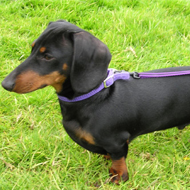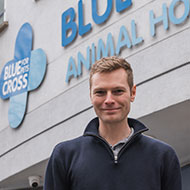A Dachshund, similar to the one that has been cloned and which will feature on tonight's Channel 4 documentary.
Woman won £60,000 dog clone
News that a dog has been cloned as part of a £60,000 competition has been fiercely criticised by the BVA.
A 12-year-old dachshund called Winnie was put forward by owner Rebecca Smith, as part of a competition organised by South Korean tech firm, Sooam Biotech.
The cloned puppy, called Mini Winnie, was conceived in a test tube and born in Seoul on March 30. The BBC reports the company has already create 400 cloned dogs.
Mini Winnie will feature in a Channel 4 documentary called The £60,000 Puppy: Cloning Man's Best Friend which is due to air tonight at 10pm.
But BVA President Robin Hargreaves said: “The BVA believes that cloning should not be commercialised in the UK. There may be many motivations for people wishing to clone their pets but it is important that people are aware that cloned pets will not have the same personalities and behaviour as the original animal.
“The process of cloning involves a healthy surrogate animal which is not in a position to give consent, undergoing procedures (for instance implantation and caesarean section) which are not for the animal’s own benefit and which may have health and welfare implications. In that context it is difficult to see how the benefits could outweigh the potential risks.”
Meanwhile the PDSA senior veterinary surgeon, Elaine Pendlebury has also spoken out against dog cloning. “We understand that losing a beloved pet is extremely upsetting, and it is important for owners to come to terms with their bereavement over time. Pets are a huge part of family life providing love and companionship and the void that can be left can be hard to come to terms with," she said.
“At PDSA we provide support and advice to owners to help them deal with their feelings and come to terms with their loss. We believe that cloning is not an appropriate way to deal with the loss of a pet.
“It is important to remember that manipulating identical DNA does not lead to an identical pet. A cloned pet may look the same but their personality will be different because personality develops through life experiences, including training and socialisation. It is a unique process that cannot be duplicated through cloning.
“The ethical and welfare consequences to cloning are significant too. The procedure not only requires a dog to donate eggs, but also for a dog to become a surrogate mother, posing very obvious risks to the health of animals involved.
“When an owner feels they can cope with their loss and can offer a new home to a pet, there are literally thousands of dogs that need loving homes in rescue centres across the country.”
Image by Ellen Levy Finch







 The latest
The latest 
